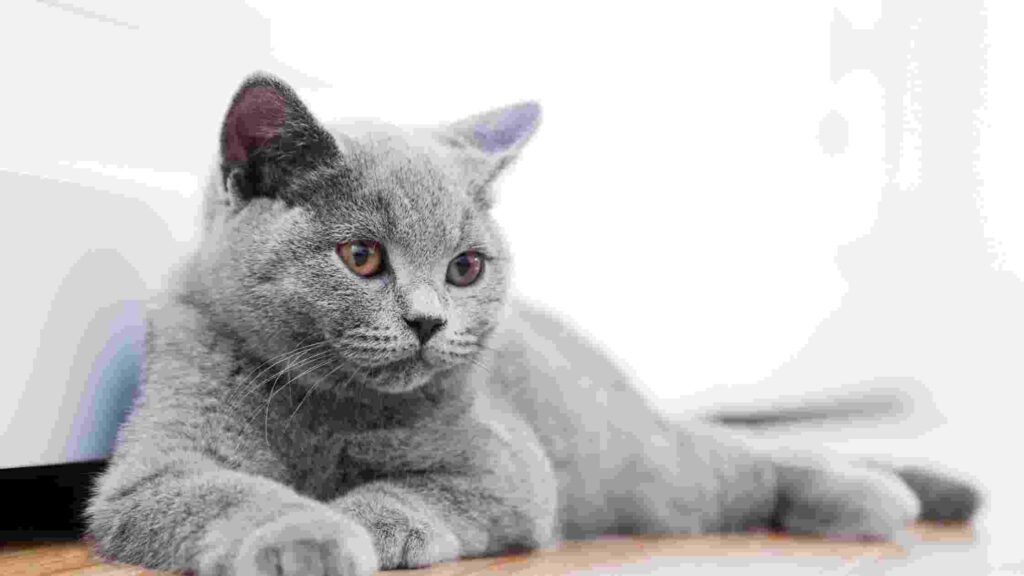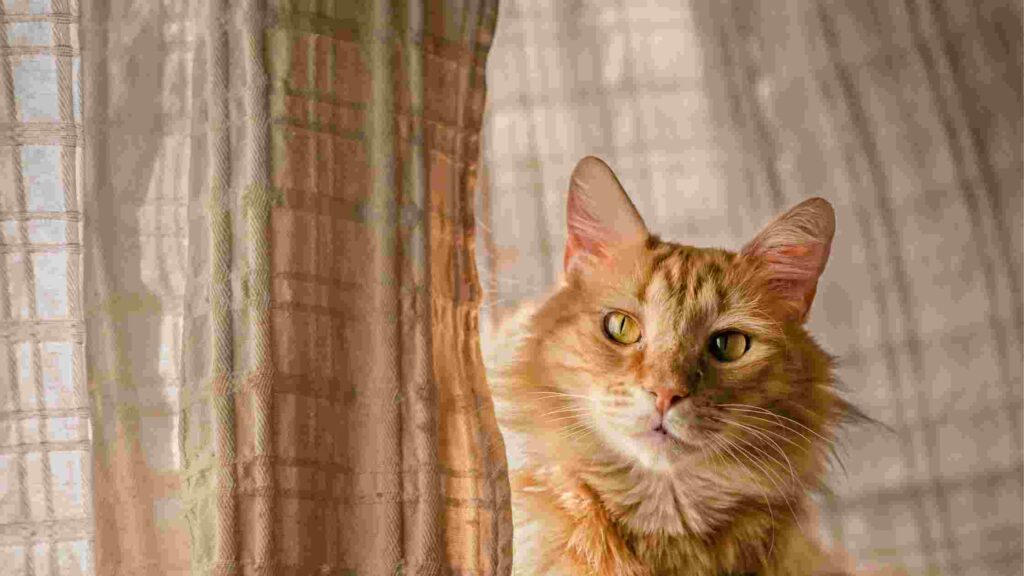Can cats eat pears? According to the medical, pears are rich in essential antioxidants, plant compounds, and dietary fiber. As a part of pear in diet, it can support weight loss and reduce the risk of cancer, diabetes, and heart disease. So, is pear a good choice for cats to feed?
Yes, the fleshy part of pears is suitable for cats to eat in small amounts. Pears are full of vitamins C and A with fiber which makes an excellent snack for cats and kittens in moderation.
But pear seeds, pips are toxic to cats; they contain cyanogenic glycosides. Overeating can affect your cat’s oxygen levels and kill if they consume in high amounts.
In this article, we have mentioned pears’ nutritional benefits, drawbacks, what parts of pear are good or bad for cats, and many more things you never knew before. So, clear the whole concept if you plan to feed pears to your cat.
Can Cats Eat Fruit Pears?

Although healthy fruits like apples and pears are not bad for cats, it is not a primary diet they need. Cats are obligate carnivores and want a high meat diet from chicken, turkey, lamb, beef, not from pears fruit.
Pears are good for humans as pears contain a good essential diet. Pears are rich in vitamins, minerals, and fiber. Eating pears on a daily basis is good for health. Also, pears will heal you if you are suffering from any illness. But what about the cats? Can cats eat pear? If not, why?
Yes, pear fruit is safe for cats. Since cats are omnivorous means cats can’t derive nutrition from fruits and vegetables. But a cat will chew out pear if you feed them. Pear is good for cats to promote digestion if provided in moderation.
However, excessively it might be risky for the cat’s health. Still, are pears bad for cats? Are pears toxic to cats? How to feed pears to cats safely? Keep reading to know the answers to all these questions.
Also, Read – Can Cats Eat Potato Chips
Also, pears are not dangerous to cats if they eat in small amounts or as treats. It’s a great alternative to a cat’s main diet as a moderation. It’s feedable in a week or month if your cats have love pears.
Pears are the world’s favorite fruits that are primarily consumed in late summer into October. One medium-sized pear contains 166 calories without any fat. Humans use pears for weight loss, but cats can get maximum benefits only in small pieces.
Is pear safe for cats?

Technically, small amounts of pears do not harm cats, and it’s entirely safe. But, consuming a few whole pears daily can develop an illness in cat digestion or immune system.
Pears have many significant benefits and side effects for cats. As a cat owner, you can understand what fruit nutrition is and how to feed my cat pear.
Also, pear contains sugar, which is not recommended much in a cat’s diet. Too much sugar in cat foods can affect hair and skin.
Pears are full of nutrients and fibers. In a small amount, pears are safe for cats. Fiber present in pear helps to improve the digestion of cats.
Pears don’t contain sodium, cholesterol, and fat. So, it won’t harm your cat’s cardiovascular system. Also, it is helpful for blood pressure. Pears should always be eaten raw and fresh and cut into small, digestible pieces for your cat.
Pears also improve the immune system since pear is full of vitamins and antioxidants. Vitamins are good for healthy bones as well. Since fruit is not for cats but pears can be the safest meal for your cat.
Also Read – Can Cats eat Slim Jims
Can cats eat pear every day?
As humans, we love to eat pears daily. It’s natural to want to share things with our cats. Sometimes this tendency hurts our cats. Most cat parents know all fruits and veggies are not suitable to feed every day for cats. Pears are an excellent nutrition value, but cats are meat-eaters. So, it’s better to provide according to their natural diet.
Many treats come in the market with pears. Pears source is one of them which is toxic to cats. Also, overeating these kinds of foods for cats can be bad for health. You should talk with your vet about a proper natural everyday meal that gives a healthy and long life.
Why shouldn’t cats eat pears?
Cats aren’t interested in the fruit because the cat’s tongue doesn’t work for sweetness. However, cats can eat some fruits but it’s hard to tell if cats will enjoy them or not.
Pears contain a lot of sweetness. This sweetness is good for health since this is not concentrated and manufactured. However, a large amount of sweetness is harmful to your cat as the cats don’t tend to digest sugar.
Also, pears contain a large number of fibers that help to boost digestion. But too much fiber can cause diarrhea in cats.
Are pears bad for cats?
Fruits that are rich in sugar are bad for cats’ digestion. Cats are not supposed to consume sugar from the fruits.
Pear has a large amount of sugar that is good for omnivorous animals. But cats are carnivorous from the start. All fruits are bad for cats due to the sugar content in them. Cats are supposed to eat meat only to fulfill their sugar needs.
Also, a pear has too much fiber than a cat needs. Excessive pear can cause metabolic issues.
Benefits and Side Effects of Pears for Cats?
Before feeding pears to cats, you can know what cat requirements are. Most cats are attracted to fruits and vegetables because of their taste and liking. You should understand what your cat eats and how much they eat, although pears, vegetables, and meat.
Also Read – Can Cats Eat Pork Rinds
Benefits of Pears for cats:
- Vitamins C and Vitamins K
- High in copper
- Good source of fiber
- Great snack for cats
- Excellent in calories
- Good anti-cancer property
- Good for weight loss
Side effects of eating many pears by cats:
- Vomiting and diarrhea
- Bad for digestion and immune health
- High in sugar
- The whole pear with seeds contains cyanide which kills a cat after overeating (every day)
Are pears toxic to cats?
Anything in excessive quantities is always toxic. Feeding excessive meat to cat more than enough can be toxic as well. Since pear is a fruit and contains sugar. Sugar is not good for a cat’s digestion if more than 1% is present in a cat’s diet.
Though pears are safe for fruit, strictly pears are avoided in the cat’s diet or any other pear-flavored pastries. Also, pears contain cyanide which is toxic for cats which can influence blood oxygen levels. There is no nutrition in pears for a pet’s diet. But treating pears one or two times in a long time will not hurt your cat.
Can cats eat fruit?
Fruits are rich in minerals, vitamins, and other essential nutrients. Fruits are helpful to improve the body growth of both animals and humans.
However, it is not true for cats. Cats are not supposed to eat fruits for their daily dietary needs. Cats are carnivorous and cats tend to hunt their prey to fulfill their dietary needs.
It does not mean that all fruits are harmful to cats. Cats can eat some fruits in moderation. But, fruits must be avoided in a cat’s diet.
Also, there are some fruits that are not safe for your cats such as grapes, lemons, cherries, and persimmons.
The safest way to feed pears to cats.
Though pears are not safe for a cat’s digestion. Still, cats can feed pears in moderation. Also, cats also like to pounce when you show a pear to them.
However, to make pears safe for your cats remember the following points.
Washing pears is necessary to remove bacteria in order to avoid diseases. Boiling is one of the good options to remove bacteria.
Remove stems and seeds, they are toxic for your cat.
Chop the pears into small pieces only with the flesh part.
For kittens, 1 piece is enough and for adult cats, 2-3 pieces are enough.
How many pears for Cats?
Foods as snacks are not bad for cats if they eat 10% of their daily diet. What you calculate is how you can feed pear in moderation. It’s best to get vet advice before making pears as part of the cat’s diet.
It is good to know the exact quantity of pears that you feed to cats or kittens. According to veterinarians, fruits for adult cats limit 10 percent of daily food intake. Kittens can cat one slice of pear; ask your vet if they love a lot and invite more to feed.
Can pears give cats diarrhea? It depends upon the quality and quantity of pears. Too many pears develop health issues like diarrhea and constipation. A small piece of fresh pear is safe for cats and not poisonous.
FAQ
What fruits can cats eat?
Cats eat high in vitamins and minerals and low in fat, such as apples, pears, blueberries, bananas, and many more.
Are pears poisonous to cats?
Human foods like pears should be given as a treat and in moderation. Pears, seeds, leaves, and sauces are poisonous to cats.
Can cats eat orange peels?
No, it’s toxic to cats. The citrus oil in fruits like lemon and oranges is terrible for cats.
Can cats eat peaches?
In small amounts, peaches are ok for felines. High doses of beauties can develop stomach and diarrhea.
Conclusion – why and why pears for cats?
In cat moderation, pears are not bad for both cats and kittens. But, as a cat owner, keep in mind cats are meat lovers and don’t need any other foods as their primary food that they eat every day.
Sometimes cats like to eat pears because their owners eat them regularly in front of them. So, it is best to avoid giving pears every day.
Cats with diabetes don’t eat pears; they need high-quality vet-recommended cat food. Fruits like pears are rich in sugar, which is terrible for diabetes felines.
To sum up, pears can be eaten by cats if it is in moderation. An excessive amount of pears is harmful to a cat’s health. Therefore, pears are avoided to feed cats.
However, if you want to feed pears to your cat, remember the above-mentioned safest ways. Still, you are taking risks, pears can cause diarrhea and metabolism problems.
In case your cat misbehaves, immediately call your vet for an examination. Don’t be careless.
Hope this article helped you to resolve your query. Don’t forget to leave a comment.